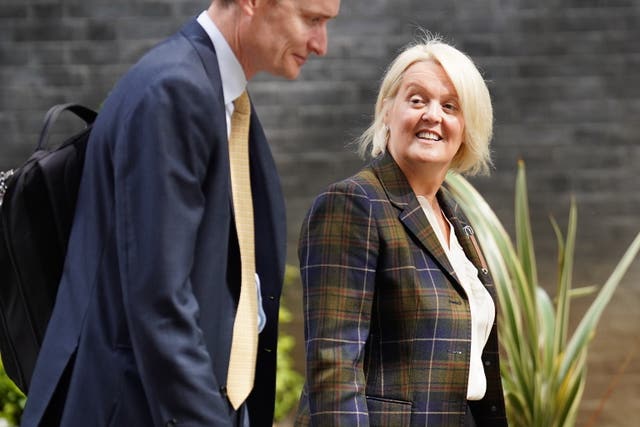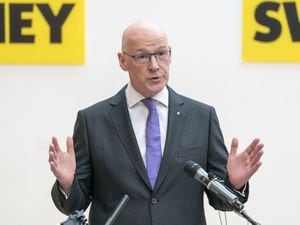Review finds no proof banks closed accounts due to people’s political opinions
The Financial Conduct Authority said it will do more work to verify the data provided by banks and building societies.

There is no firm evidence of banks denying people access to accounts over the last year due to their political views, a review by the regulator has found.
In what it called “preliminary insights”, the Financial Conduct Authority (FCA) said data submitted to it by banks and others “suggests that no firm closed an account between July 2022 and June 2023 primarily because of a customer’s political views”.
But the FCA admitted that the information collected was limited and said it needs to investigate further “to be sure”.
It said it plans to work further with banks, building societies and payment companies to verify the data they supplied and better understand why and when they close accounts due to reputational risk.

The inquiry was launched in August after Coutts Bank decided to end its relationship with former Ukip leader Nigel Farage.
Mr Farage claimed the account was being shut down due to his political opinions. However, his case is not believed to be covered by the FCA’s probe as the account was not actually closed.
An internal document compiled by Coutts showed that, when deciding to close his account, it took into consideration the fact that Mr Farage’s mortgage would shortly be paid off and also discussed potential “reputational risk to the bank”.
In the wake of the decision, Coutts boss Peter Flavel and Alison Rose, chief executive of parent company NatWest Group, both left their posts.
Speaking before the report was released, Mr Farage called it “a total whitewash”, adding: “It’s a joke.”
He accused the FCA of being “overtly political” and called for an overhaul at the top of the regulator.

The FCA acknowledged on Tuesday that it had gathered information “at speed” and said it will do more to “address gaps in the data”.
Speaking to reporters, FCA executive director for markets Sarah Pritchard said the results provided “preliminary insights” and that the regulator will keep investigating.
“We know that it’s important to be sure, so we’ll be doing more analysis and supervisory work to better understand the data that the firms have reported to us,” she said.
“We’ll also be looking to understand the reasons why firms have closed accounts due to reputational risk.
“This may well be legitimate, but we want to make sure these criteria aren’t being used too broadly.”
The FCA said banks had initially flagged four cases where “expression of political or any other opinions” had been highlighted as the reason for an account being closed.
But on further investigation the FCA found this was not the case and the accounts were in fact closed because of a customer’s behaviour, including racist language directed at staff.
FCA chief executive Nikhil Rathi said: “While no bank, building society or payment firm reported to us that they had closed accounts primarily due to someone’s political views, further work is needed for us to be sure.”
The FCA said it will focus on “outlier firms” when ensuring the data provided is accurate.
It will also look into why 1.1 million people in the UK do not have a bank account and what kind of people fall into this category.
Mr Rathi said: “As we undertake that work, the time is also right for a debate on how we balance access to bank accounts with the threat of financial crime, as well as firms’ reasonable risk and commercial appetites.
“An important question for policymakers is whether all individuals, businesses and organisations should have the right to an account, as is the case in some other countries.
“What’s more, international comparisons suggest robust digital identities could play an important role not only in countering financial crime but also in aiding financial inclusion.”
Economic Secretary to the Treasury Andrew Griffith said: “We note the initial report of the FCA. Clearly there is more to be done to validate the submissions by banks and to ensure that the FCA have thoroughly followed up de-banked customer perspectives.”





